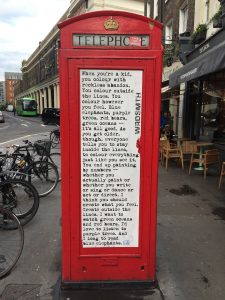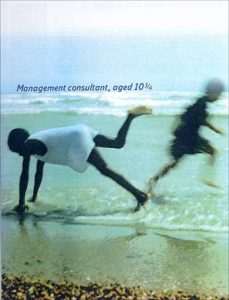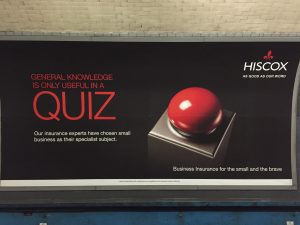Listen to purple trees…
Wandering through Covent Garden with my daughter on our way to see our favourite painting in the Courtauld Collection, we came across Wrdsmth’s arresting appropriation of this K6:

A call to keep the creative spirit we all share as children, to colour outside the lines, to watch green oceans and red bears, to listen to purple trees.
Picasso put it well, as well: “It took me four years to paint like Raphael, but a lifetime to paint like a child.”
A long while ago, I did a piece for a client that riffed on the same theme:

He may only be knee-high to a grasshopper, but you can learn a lot from this young fellow…
There’s something about a beach that capture’s a child’s imagination.
Give them a stretch of sand and some sea and who knows where it will lead. New adventures? New friends? New experiences? Maybe just wet feet and hands. But one thing’s for sure: children will happily spend hours on a beach doing the things that us grown ups are all too often far too grown up to do. Things like exploring, discovering, rooting around and joining in, sharing stuff, trying stuff out just for the hell of it. Generally having the time of their lives.
The kid cartwheeling on the sand. Or the grown up snoozing in the deckchair. Which one’s the more inspirational?
That’s not to say we should all act like ten year olds. Just that we can all draw inspiration from how a ten year old acts. Management consultants talk about empowering, innovating, re-engineering… It’s often difficult to see what it is that they’re actually getting at – right here, right now, in the hustle and bustle of our everyday lives. For a different, more enlightening point of view, we could do a lot worse than watch, listen and learn from the cartwheeling kid.
Who knows, we might even end up doing a few cartwheels ourselves.
Some things bear repeating, with different hues and tones each time.




